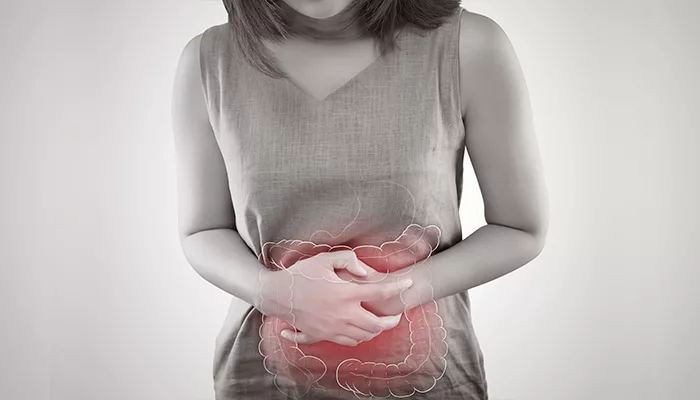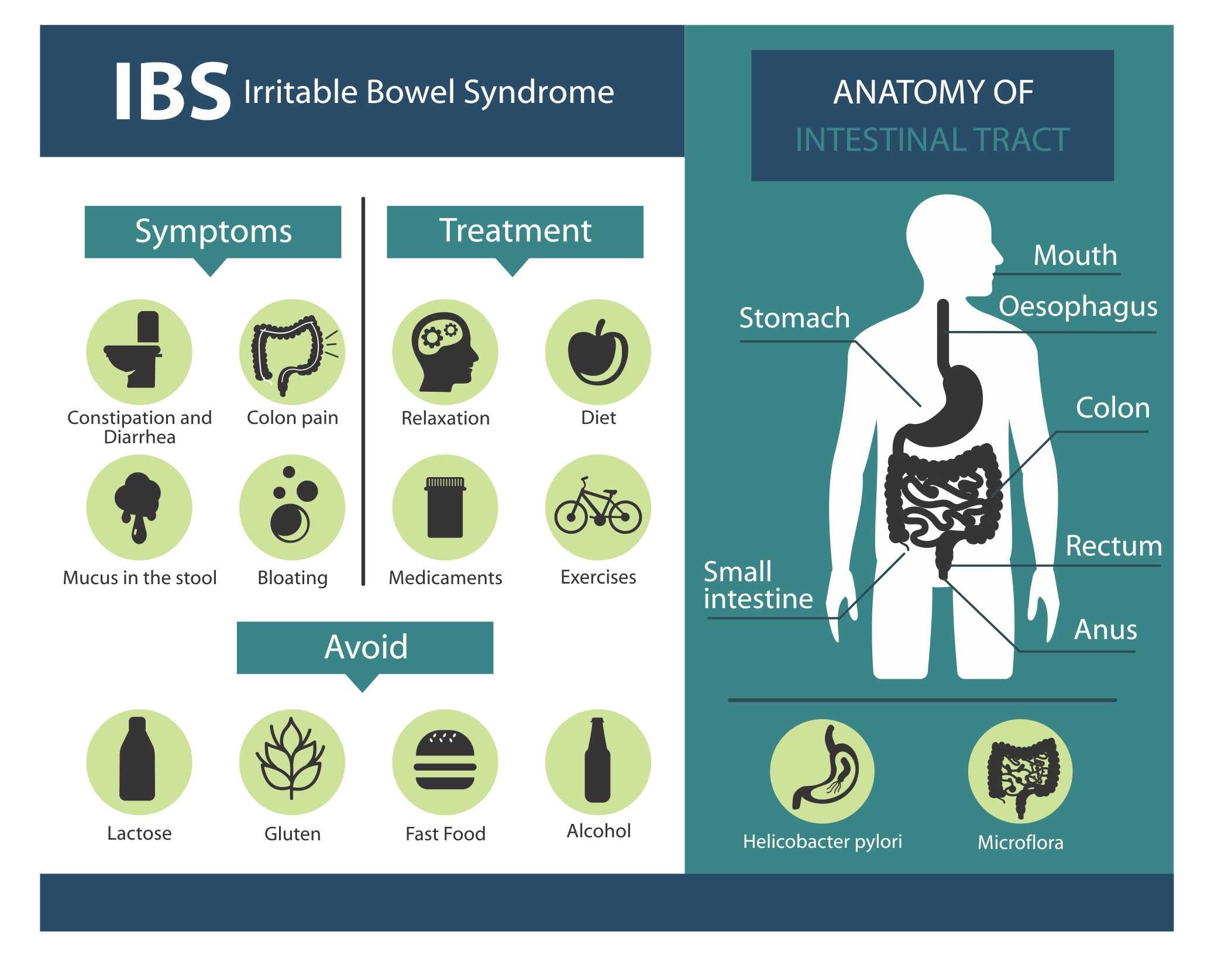All you need to know about Irritable Bowel Syndrome (IBS)
May 7, 2019
Irritable Bowel Syndrome (IBS) is all about how the bowel works. It is a long-lasting condition of the bowel or the gut, which manifest as abdominal cramps, bloating of the stomach and constipation or diarrhoea. IBS causes a lot of discomfort though it may not be detrimental to the body. The exact cause is not known, and treatment usually includes some strict lifestyle changes with medication to ward off the symptoms.
Understanding Irritable Bowel Syndrome (IBS):
Irritable Bowel Syndrome is a common disease seen more often in young adults. Studies have also shown that women are more affected than men. IBS is long-lasting and could even be a problem throughout life without affecting other aspects of the body. The function of the gut or the Gastrointestinal tract is troubled with significant change in occurrence of the stool and bowel habits. It could happen to anyone at any age.
All symptoms are not to be concluded as Irritable Bowel Syndrome. Some symptoms may be mild and occur occasionally while others may be unpleasant. It is best for your doctor of a specialist such as a Gastroenterologist to examine the same. You must inform your doctor immediately.
Broadly, IBS could be grouped into any one or more of the following categories:
- Abdominal pain and discomfort coupled with a feeling of bloating and constipation.
- Abdominal pain and discomfort coupled with an urgency to go to the toilet or diarrhoea.
- There are also cases where people may sometimes have constipation and diarrhoea at other times.

The likely causes of Irritable Bowel Syndrome (IBS):
What exactly causes IBS is not clearly known, though the assumption is that bowel disturbance may occur when there is exertion or excess activity on the digestive tract (bowel).
- There are contractions of the muscle in the wall of the bowel when food is passed. It may cause pain if these contractions are vigorous or abnormal, which may develop into diarrhoea or constipation.
- Being stressful and emotionally upset may also contribute to strain on the nerves or muscles of the bowel. Stress and anxiety could worsen the symptoms.
- Foods that the digestive tract doesn’t accept may cause gas or stomach cramps, though the number of such cases is minimal.
- Infection in the gut causing diarrhoea or making you sick commonly known as Gastroenteritis or Enteritis could be one of the causes. A virus or bacteria in the gut might trigger this.
- People with Irritable Bowel Syndrome are more sensitive to pain during bowel movements. Their tolerance level for pain from the gut is lower.
Symptoms:
The symptoms of IBS for each person may differ. Some of the common symptoms include:
- Abdominal Pain – Different parts of the stomach may pain, and this could be recurring. You may find a bit of relief from pain when you pass stool or wind. Women may have such pain during menstrual cycle as well.
- Swelling of your stomach called as bloating, which may cause more wind or gas to be passed.
- Another symptom is to have mixed stool pattern. While some may have a combination of diarrhoea and constipation, others may experience loose stools. It may also be tiny bits. People may also feel a sense of incompleteness of not fully emptying the back passage after going to the toilet. You may also feel an urgent need to go to the toilet several times.
Diagnosis
In the absence of tests to confirm Irritable Bowel Syndrome (IBS), doctors usually depend on analysing the symptoms. However, some tests such as a blood test or stool test may be done to rule out other conditions. Among women, the blood test is done to rule out cancer of the ovary. Stool tests may be done to check for other diseases such as Crohn’s disease or Ulcerative Colitis. They also check for bleeding from the bowel.
A more detailed examination may be done for IBS patients above the age of 40 such as Gastroscopy or Colonoscopy if they do not show any of the common symptoms.
Treatment
The treatment cannot cure IBS completely; however, it can relieve the symptoms and make you feel comfortable to carry on with your day-to-day work. Mild cases of IBS usually do not need any treatment.
Diet Recommendations
It is advisable to reduce the intake of the following foods for patients with irritable bowel syndrome:
- Processed or Fast Foods such as pizza, burgers, chips, cakes, biscuits and so on.
- Whole grains, corn, pulses, banana and muesli and vegetables such as cabbage, cauliflower and broccoli are partially digested in the small intestine. The residues then reach the colon causing gas and stomach cramps.
- Pastry and savoury snacks.
The following diet and lifestyle pattern are recommended:
- Water, soy milk, rice, soy products, white bread, fish, chicken, cornflakes, lettuce, salads and so on
- A diet high in fibre such as cereals, baked products, split peas, lentils, black beans and raspberries.
- A regular practice of yoga, meditation, swimming and moderate exercise such as running etc. is good to alleviate stress and anxiety.
- Support groups may help as cognitive behavioural therapy changes thoughts.
Prognosis:
It is estimated that only 5% of people diagnosed with IBS have other comorbidities. While the symptoms may be chronic leading to discomfort, stress and absence from work, it does not lead to any serious ailment or causes any harm to the body.
Find Relief from Abdominal Cramps, Bloating, and Constipation: Everything You Need to Know About Irritable Bowel Syndrome
NOTICE BOARD
CONTACT US
CONTACT US
 Book Appointment
Book Appointment


.svg)
.svg)
.svg)
.svg)








